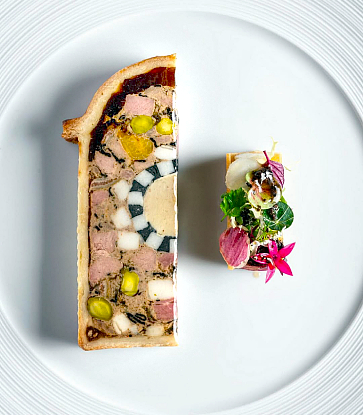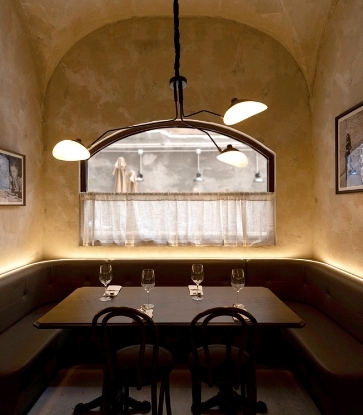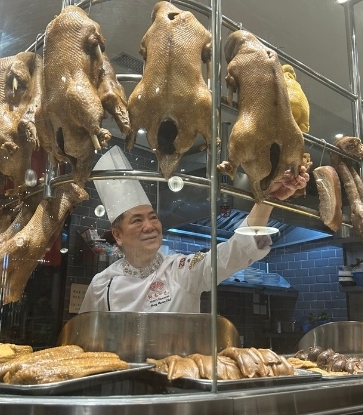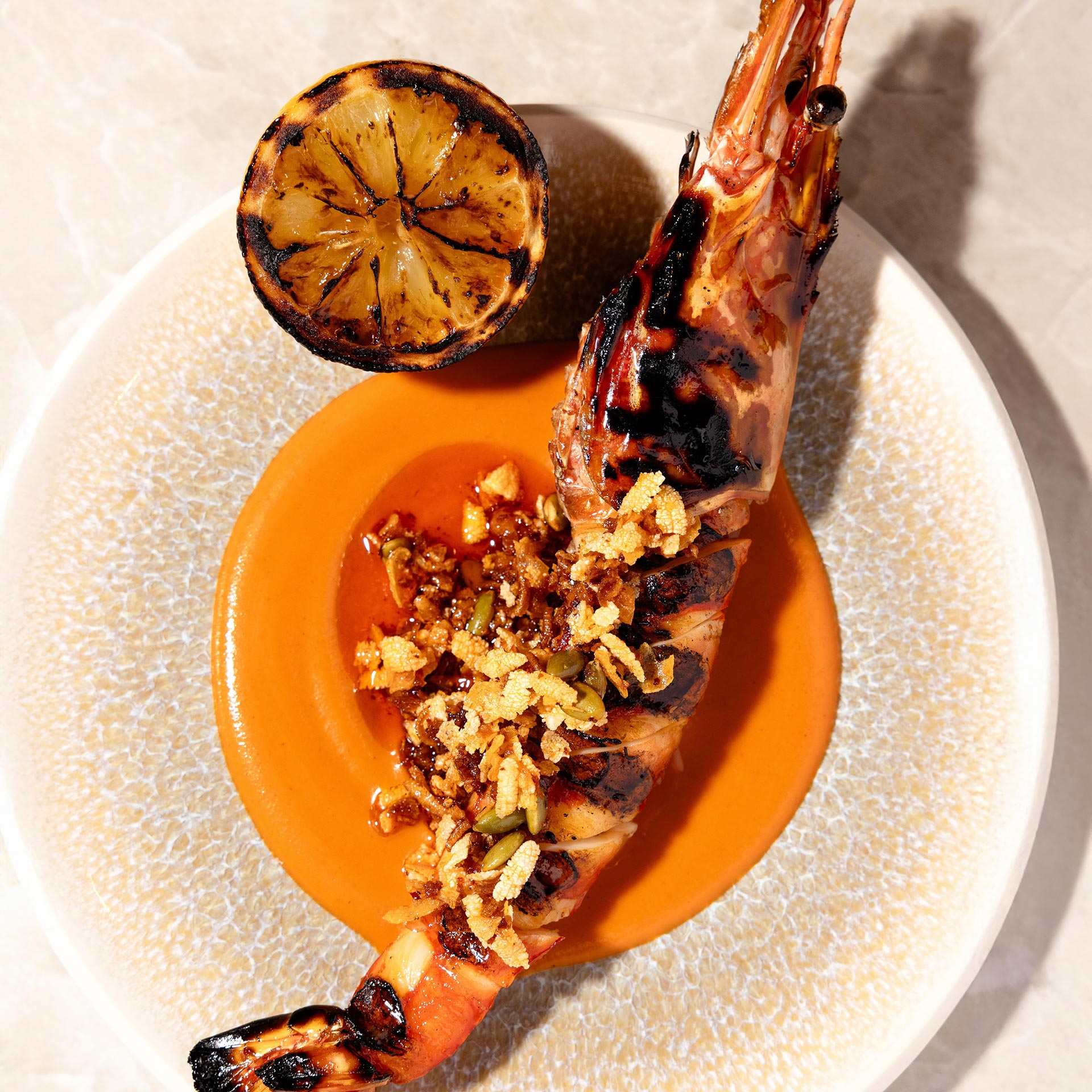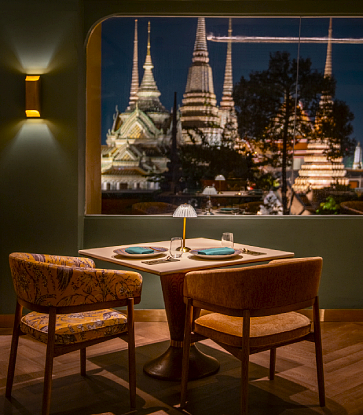Without a doubt, 2020 was an exigent reminder that sustainable gastronomy matters more than ever. Restrictions on imported produce during the pandemic means chefs had to look inward and around for locally-grown ingredients, reassessing their kitchen practices from production methods to waste management.
Prior to the pandemic, the MICHELIN Green Star debuted in the MICHELIN Guide France 2020 with the aim of recognising chefs and restaurateurs who are at the forefront of promoting sustainable practices in the kitchen. The brand new MICHELIN distinction is complementary to any Plate, Bib Gourmand, or Star restaurants. With a vision to echo their sustainable efforts, the MICHELIN Guide has rolled out the Green Star internationally in the subsequent Michelin Guide launches across Europe and Asia.
From Roganic’s in-house microgreens and zero-waste practice to PRU’s terroir-driven dining experience that celebrates produce from nearby sea and land, these Green Star restaurants in Asia are proof that gastronomic excellence does not need to come at the cost of our environment.

Hong Kong
Roganic
One MICHELIN Star and MICHELIN Green Star, MICHELIN Guide Hong Kong Macau 2022
A sister restaurant to the UK’s MICHELIN Green Star restaurant L'Enclume, Roganic is the brainchild of Simon Rogan, who has been at the forefront of promoting provenance and traceability of the ingredients over the past decade.
Committed to delivering a “farm-to-fork” dining experience, Roganic’s sustainable practices range from growing microgreens in-house and sourcing from local, organic farms to reduce carbon footprint; a zero-waste approach to use the entirety of each ingredient; and conscious packaging choices to avoid plastic use.
The chef's commitment: "The team makes every endeavour to use the entirety of each ingredient to achieve zero-waste. Techniques like dry-ageing and curing have been introduced. Our menu brings local poultry and veggies to the table, as well as house-grown herbs and micro greens using a technological system from Evogro. Plastic usage is reduced by using compostable alternatives such as plant-based packaging for takeaways. To further promote a sustainable dining concept, we host a series of talks and workshop for students and organisations to share our experience." — Oliver Marlow, head chef of Roganic
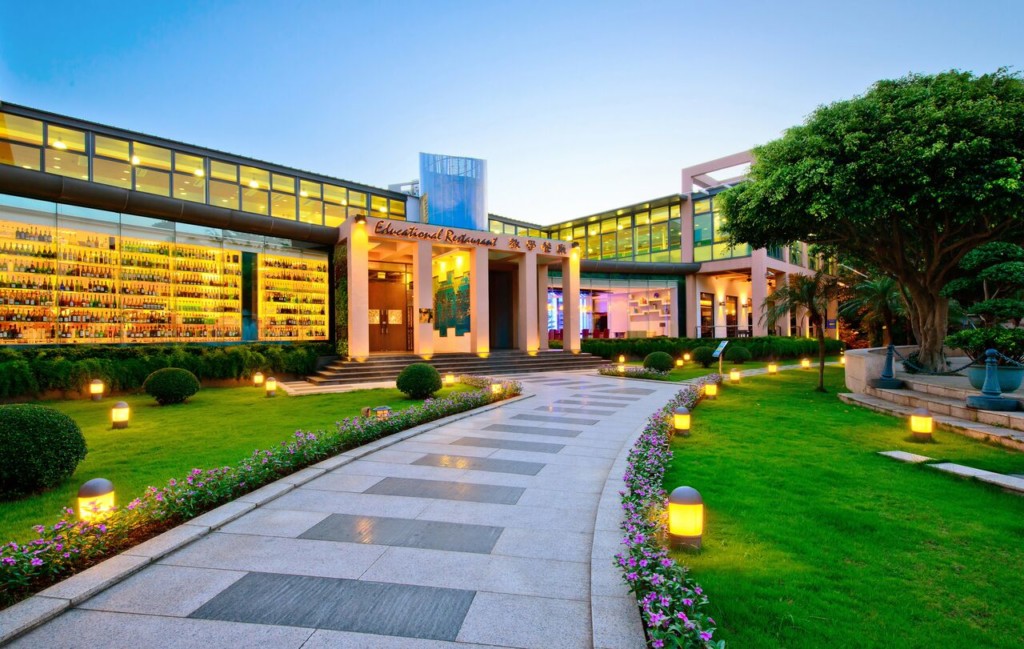
IFT Educational Restaurant
Bib Gourmand and MICHELIN Green Star, MICHELIN Guide Hong Kong Macau 2022
Serving a mix of European and Macanese cuisine, IFT Educational Restaurant serves as a training unit for students studying hospitality. An advocate of organic agriculture, the institute nurtures the practice of homegrown herbs, salad leaves and vegetables.
To sustain an organic ecosystem, students are encouraged to practice crop rotation and biological pest control to ensure the ingredients are served in the best condition.
The chef’s commitment: The restaurant was set up as an educational training unit to sustain the development of Macau’s hospitality industry. In the kitchen, we try to minimise food scraps both in teaching and cooking. Food waste is converted into fertiliser by a food decomposer, and then used to grow herbs and greens in our garden, which employs crop rotation and biological pest control. We are committed to reducing energy and resource consumption by using a diverse approach involving a solar energy system, paperless policy, and infra-red sensors for electrical appliances.

Thailand
PRU
One MICHELIN Star and Green Star, MICHELIN Guide Thailand 2022
Back in 2019, PRU was the only restaurant in the two regions of Phuket and Phang Nga to have been awarded a MICHELIN star in the MICHELIN Guide Thailand that year. In the 2021 edition, PRU made history again as the first restaurant in Thailand to receive a MICHELIN Green Star.
Focusing on respectfully sourced local produce since day one, PRU—short for “Plant, Raise, Understand”— is led by Dutch chef Jimmy Ophorst. Just a 20-minute drive away is the restaurant’s own 96-hectare organic farm, home to its organic vegetable gardens, free-range chickens, and ducks.
The chef's commitment: “We strive to minimise our carbon footprint, chemical use, and food waste to promote a ‘Dine Good, Do Good’ philosophy. Only seasonal ingredients from Thailand are used, including line-caught seafood and free-range animals. Our research team built a seedbank to preserve local agricultural biodiversity.” — Jimmy Ophorst.

China
King’s Joy
Three MICHELIN Stars, MICHELIN Guide Beijing
Just a two-minute walk from Yonghe Temple, King’s Joy is often credited as the golden standard for fine vegetarian cuisine. Under the helm of Taiwanese chef Gary Yin, the ingredients are sourced from local, organic farms, and the kitchen is committed to reducing energy and food waste.
At the forefront of sustainable gastronomy in China, King’s Joy offers refined plant-based options that have become restaurant’s signature, including honeylocust, fox nuts and peas, as well as rice with assorted mushrooms and peach resin.
The chef's commitment: "King’s Joy offers vegetarian cuisine using green and seasonal produce that is sourced from local, organic farms. We strive to reduce energy and resource consumption by banning disposable items, reducing electricity usage and recycling. We also promote a sustainable lifestyle through community activities, including clothing donation and enzyme cleaner classes." — Gary Yin
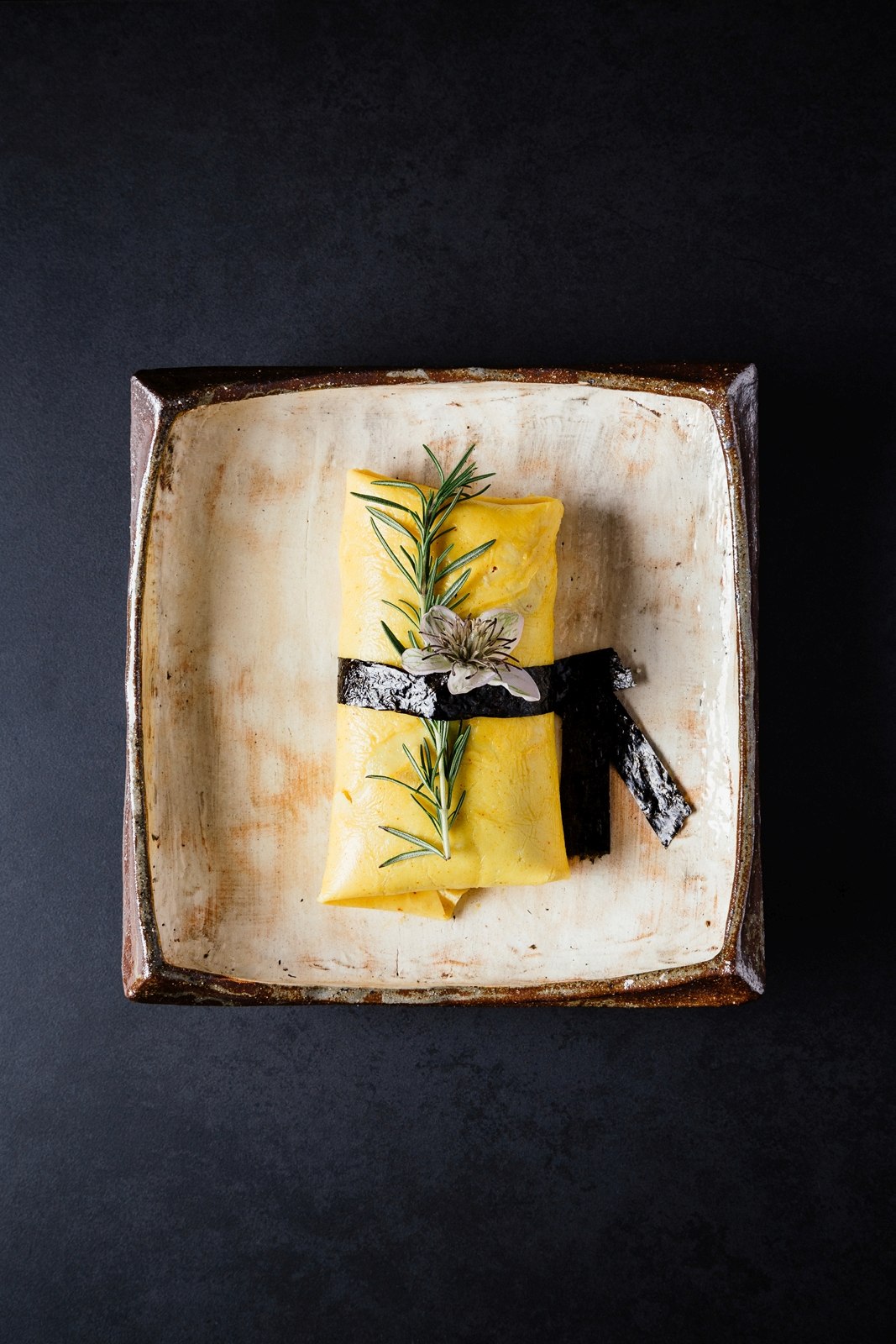
Seoul
A Flower Blossom on the Rice
Bib Gourmand and MICHELIN Green Star, MICHELIN Guide Seoul 2022
Taking a holistic approach to food, the restaurateur Song Jung-eun of this cosy restaurant in Insa-dong is a firm believer in sustainable gastronomy as the driving force of a healthier future.
The whole ecosystem of how the restaurant is run is based on sourcing certified organic ingredients straight from the farm, where every factor—from the health of the soil to the weather conditions—is thoughtfully considered to ensure the quality of the produce.
The chef's commitment: "The restaurant procures 95% of its ingredients via direct transactions with farms that have been awarded organic, eco-friendly, animal welfare, non-pesticide, organic processing, and biodynamic certifications. Moreover, through its own agricultural entity, the restaurant is striving to popularise eco-friendly ingredients of the region." — Mme. Song, Jeong-eun
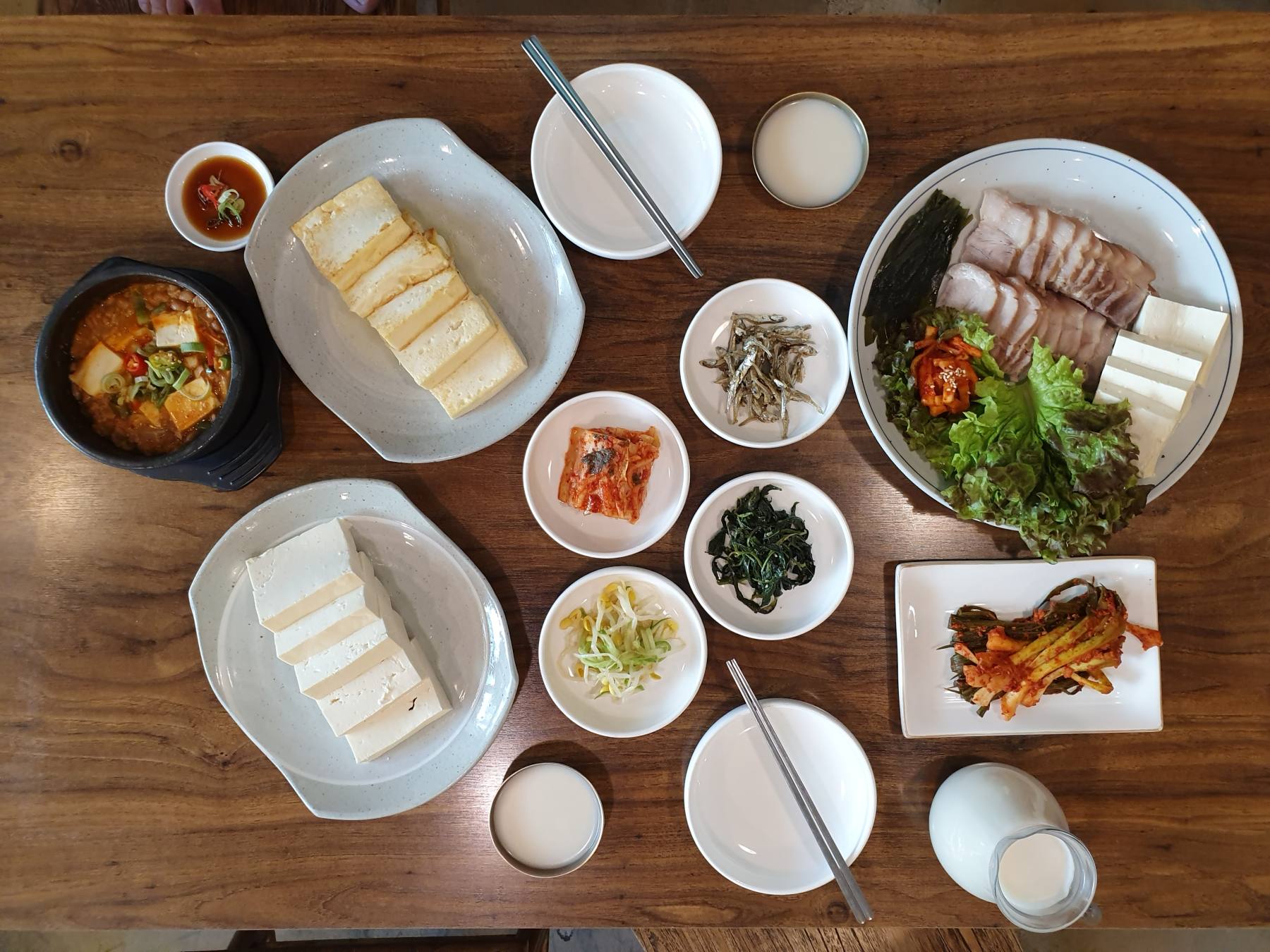
Hwanggeum Kongbat
Bib Gourmand and MICHELIN Green Star, MICHELIN Guide Seoul 2022
Tofu, one of the most sincere and humble ingredients in the Korean food culture, is at the core of this hidden gem in in Ahyeon-dong. Owner Yoon Tae-hyun visits the Sobaeksan Mountain to source the local soybeans, which, according to him, are incredibly delicious due to its terroir, where good water drainage and a wide daily temperate range can be found.
During the process of studying tofu, Yoon learned about baking naturally fermented bread, which in turn helped him understand flour and develop noodles that do not contain any additives. With a sincere wish to improve others’ health through food, Yoon also dedicates his time building relationships with local anchovy farms and eco-friendly pig farms in Jeju.
The chef's commitment: "My kitchen team and I use a diverse range of fresh local ingredients- from Sobaeksan or Jeju Island-, most of them procured through direct transactions with producers and all delivered directly to the restaurant. To serve dishes imbued with the ultimate in freshness, tofu and kimchi are prepared daily. The leftover pureed soybean from making tofu is meticulously collected and sent to farms to be used as fodder." — Mr. Yoon, Tae-hyeon
RELATED: MICHELIN Green Star Restaurants: Food for a better tomorrow



